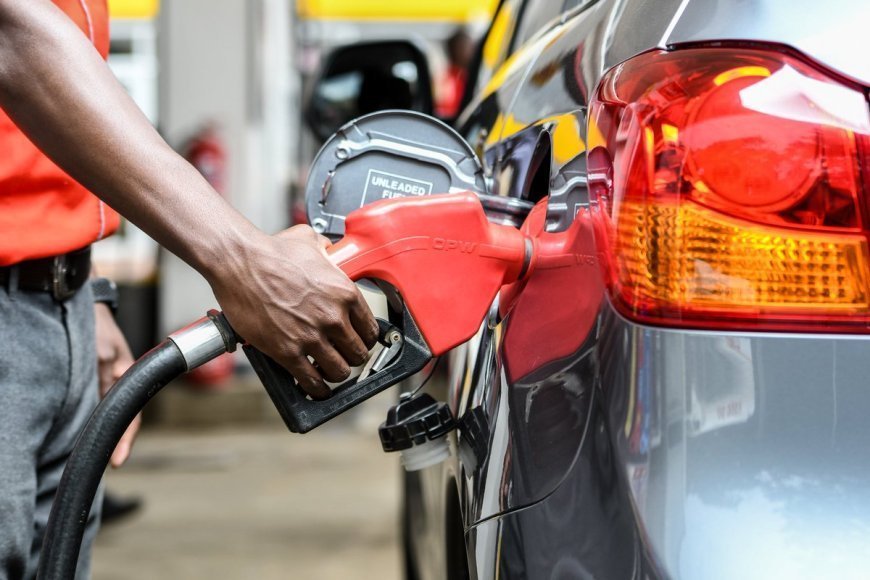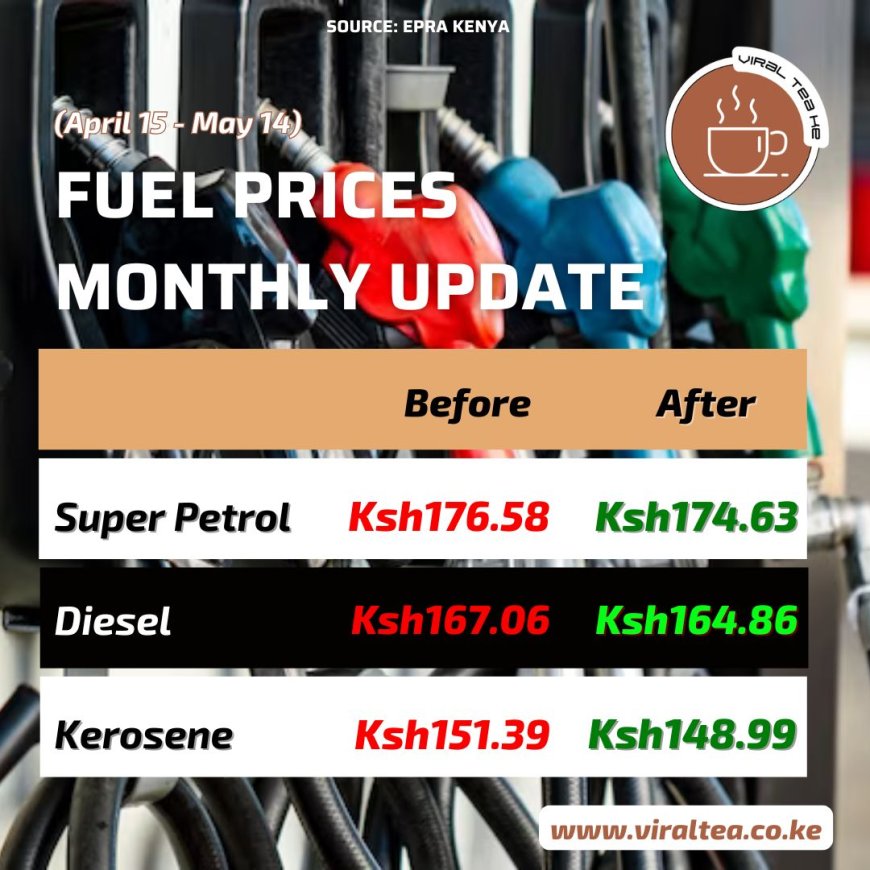EPRA Lowers Fuel Prices For April-May 2025
The prices have been lowered by up to Ksh2.40, with Super Petrol, Diesel and Kerosene recording decreases by Ksh1.95, Ksh2.20 and Ksh2.40.

The Energy and Petroleum Regulatory Authority (EPRA) has announced the prices of Super Petrol, Diesel, and Kerosene fuel products for the upcoming month, set to take effect at midnight tonight.
The prices have been lowered by up to Ksh2.40, with Super Petrol, Diesel and Kerosene recording decreases by Ksh1.95, Ksh2.20 and Ksh2.40.
"In accordance with Section 101(y) of the Petroleum Act 2019 and Legal Notice No.192 of 2022, we have calculated the maximum retail prices of petroleum products, which will be in force from 15th April 2025 to 14th May 2025," announced EPRA in part.
"In the period under review, the maximum allowed petroleum pump prices for Super Petrol, Diesel and Kerosene decrease by KShs.1.95/litre, KShs.2.20/litre and KShs.2.40/litre respectively."

Following this, the prices read as follows: Super Petrol, Diesel, and Kerosene will now sell at Ksh174.63, Ksh164.86, and Ksh148.99 per litre, respectively. In the last month, the fuel products retailed at Ksh176.58, Ksh167.06, and Ksh151.39, respectively.
The new prices are inclusive of the 16% Value Added Tax (VAT) in line with the provisions of the Finance Act 2023, the Tax Laws (Amendment) Act 2024 and the revised rates for excise duty adjusted for inflation as per Legal Notice No. 194 of 2020.
The average landed cost of imported Super Petrol dropped by 4.89%, falling from Ksh82,396.79 (US$637.22) per cubic metre in February 2025 to Ksh78,388.61 (US$606.06) in March.
Diesel prices saw a 6.45% decline, from Ksh87,974.91 (US$680.63) to Ksh82,388.87 (US$636.75) per cubic metre, while Kerosene fell by 6.53%, from Ksh86,876.15 (US$672.14) to Ksh81,228.97 (US$628.22) over the same timeframe.
"Currently, Kenya imports all its petroleum product requirements in refined form, and the products are traded in international markets based on a pricing benchmark," EPRA added.
"Further, the trade of petroleum products in the international markets is denominated in United States Dollars, and an exchange rate is applied to convert the dollars to shillings during the computation of local pump prices."







